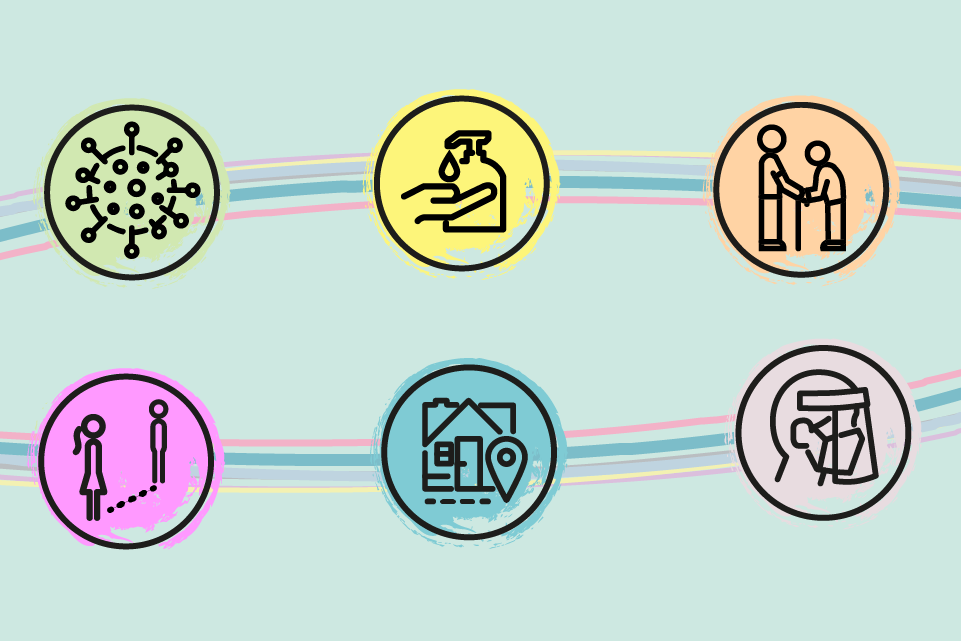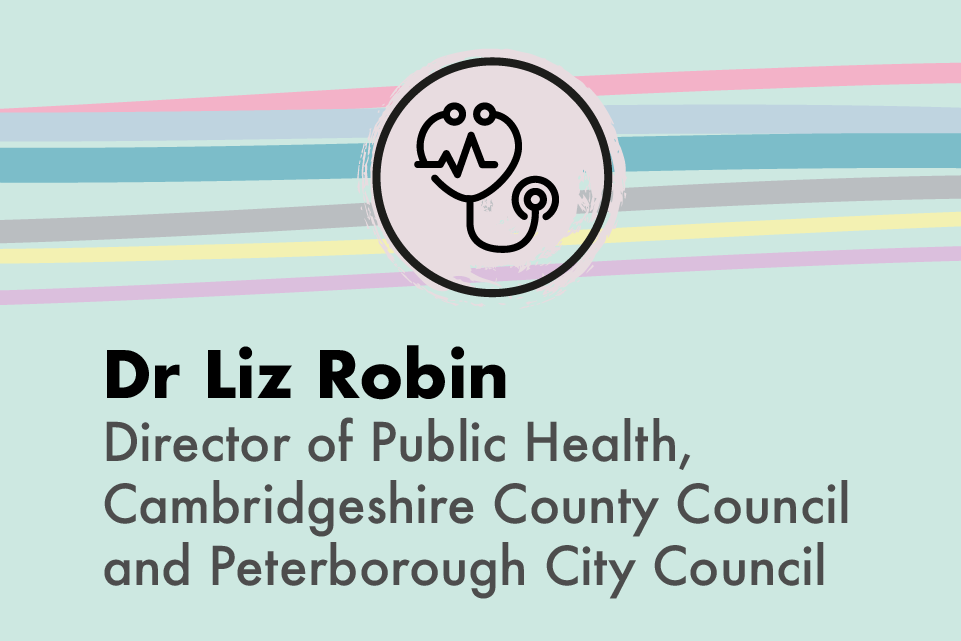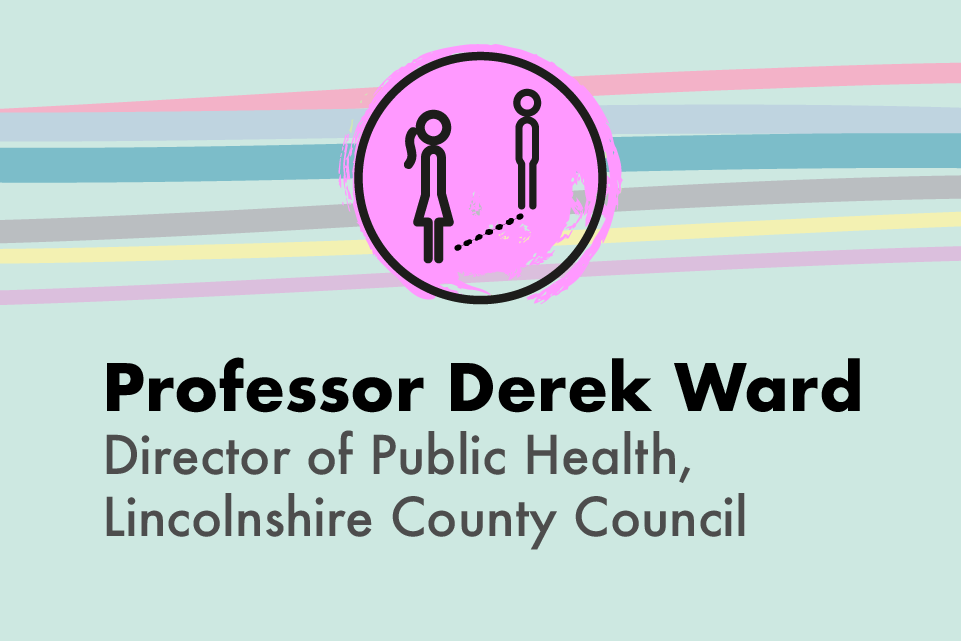An interview with Matt Tyrer, Director of Public Health, Cheshire East Council
This is part of a series of interviews with public health directors, published on 30 March 2021.
Dr Matt Tyrer was just over a year into his first job as a public health consultant when he became acting director of public health for Cheshire East Council – within six months he was thrust into the Covid pandemic.
“My predecessor had a fantastic opportunity to leave her role to pursue her dream of travelling the world. I had stood in for her briefly earlier in the year and so the council leadership suggested I step into the acting role for six months. The idea behind this was to gain further experience whilst I considered whether I wanted to apply for it.
“That, of course, got pushed back because by then we were at the start of the pandemic. I remember coming back from two weeks off just before the schools were returning following half-term and the situation escalated.
“It was when things really started changing. It became clear it was spreading through communities. It could not be managed by public health teams alone and I realised I was in a pandemic.”
‘I received some wonderful support’
One of the problems Dr Tyrer faced when the pandemic started was he had no permanent public health consultants. His vacant post was unable to be filled and the other consultant post became vacant.
“We were a lean team and had to bring people in. I had got Rod Thomson, a former director of public health in Shropshire in. He had been doing some mentoring with me earlier in the year as he lives in the county. He is still with me today. He has been a great source of advice, support and camaraderie. I have really valued his insight, support and hard work over the past year.
One of the first steps Dr Tyrer took was setting up a number of operational cells covering a range of key emergency response areas. This response model is still being used in Cheshire East and now incorporates recovery. “We pulled in extra staff from HR and social care. Everyone pulled together. The support I have received from all quarters has been wonderful.
“We had an early case across the border in Derbyshire – I invited myself to one of their meetings to do what I could to learn how we could best respond as a system. Looking back now, it happened so quickly. We didn’t have time to think. It is now clear that in those early days what we were seeing was just the tip of the iceberg.
“You plan for pandemics. You do exercises - I learnt about Swine Flu, SARS and MERS in my training. But nothing can prepare you for what has happened in the past year.
“In those early days I remember being really tired, exhausted. We were having an emergency meeting at 8am every morning and working late. The move to remote working actually helped in terms of the commute - at least initially - but it is isolating.
“A new chief executive started early in the pandemic – I had to get to know her, build up a relationship and develop trust online. We had also just had a change in political leadership so there had been lots of change. I am pleased to say how well we work as a team and how positive the relationships between officers in the council and with our elected members.”
‘My mental health suffered’
Dr Tyrer said one on the most time-consuming aspects in those early days was keeping on top of the guidance. “There was so much being published. I would try to get across it all so I could explain what it meant. It got too much. You get snow blind and start doubting yourself. I remember looking back through the documents looking for key lines to answer specific questions, you are sure you have seen it but then can’t find it.
“Eventually we asked individual services to read the guidance and we would help them with interpretation where needed. There was just so much to keep up with. Looking back, I can see I was trying to do much. It was probably partly inexperience and partly the unprecedented nature of it all.
“Emotionally it was very draining. I am someone who likes to be busy, but it did get too much. My mental health did suffer. I felt burnt out. I needed a few days to recover. You learn a lot about your personal resilience – but it’s probably not the best time to do it in the middle of the pandemic.”
Dr Tyrer said the second wave has still been difficult in its own way. “We had much better data. We could see what was happening. And because we could it was very hard to watch the cases rising, hospitals getting busier and, even after lockdown, knowing it would get worse before it got better. It was disheartening, because there was nothing we could do due to the way the rises in hospital cases and deaths are ‘baked in’ to rising rates. The vaccination programme has been a real positive. It has given everyone a lift.”
Dr Tyrer said while Cheshire East has not been as badly hit as some of the metropolitan areas in the north west, he has still faced some significant challenges.
“It is largely rural, which creates its own difficulties. Take asymptomatic testing for example. We have had to work differently, making use of mobile testing units and local pharmacies rather than having a single large testing site. It has encouraged us to innovate - we have been working closely with our partners in the regional testing teams and with the Department of Health and Social Care to look at how we can deliver things differently.”
Looking forward to getting back to non-Covid work
One project that has got under way is what Cheshire East is dubbing “swab squads”. These are team of lateral flow testers who work with businesses to test staff.
“We have really benefitted from getting more people in – having a fresh pair of eyes to look at things. We have brought in a test and trace programme manager who has been instrumental in this.”
“I think, for me, that has been a key bit of learning. At the start I was so busy operationally that I didn’t have a chance to think and look at things strategically. As we have gone on – and especially over the summer when cases came down – we were able to think more strategically.
“We were still busy – wondering if schools were reopening and about care home visiting. There was lots of planning for events and what we can do and can’t do. But it did provide some time for reflection and time to bring in other staff.
“Finding solutions like this is what public health is all about. And it is something I want to get back to more. I do feel guilty at times that the focus on Covid has meant we have not been able to do all the other things we normally do in public health.
“I got into public health because of the variety. You can be doing something on cycling in the morning, TB at lunchtime and assistive technology in the afternoon. You don’t always know what the day will bring and the new ways you can find to make a difference. I would like to get back to that – and now as we, hopefully, start to move out of the pandemic, or at least the worst of it, I will be excited to get back to that.”




